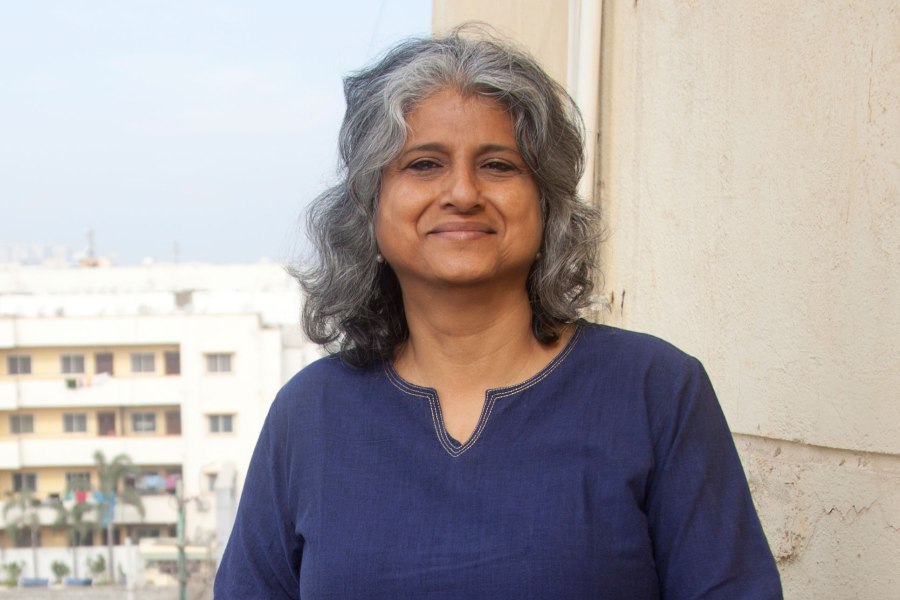IKEA Group is helping to tackle poverty and empower women by sourcing from a network of 30,000 artisans
Industree Foundation is an Indian social enterprise that aims to tackle poverty in the garment manufacturing industry by creating an ecosystem of thousands of self-employed female micro-entrepreneurs, who work locally rather than in far-off traditional garment factories.
It uses apps to build traceable systems to track producers’ payments and allow them access to raw materials, capital and design, and has an e-commerce platform to connect producers making handmade products directly to customers and retail markets.
Industree Foundation has reached 30,000 women artisans across India and Africa, through collaborative efforts with organisations such as India based retail group Future Group, and IKEA, which teams up with social enterprises in India for its Next Gen initiative, which aims to enable social entrepreneurs to gain access to global markets. Since 2011, 2,000 artisans have been embedded in the end-to-end value chain of banana bark products and have benefitted through the partnership, and over 600,000 products have made their way to over 72 Ikea stores in Europe, Japan and Korea.
Neelam Chhiber, who founded Industree Foundation in 2000, says: “Whatever we do has to be disruptive.” She says the potential for the garment industry to grow sustainably, embracing new technologies and empowering women, is huge, with 30 million women in India who still rely on fashion for employment.
“We went to tribal artisans and worked with them in mud huts,” Chhiber said, helping to organise them into production units and create a sustainable business at the lowest possible cost.
Since 2014, India has enshrined corporate giving into law, requiring businesses with annual revenues of more than 10bn rupees (£105m) to give away 2% of their net profit to charity. Industree’s vision is for the micro-entrepreneurs to be initially underpinned by such corporate donors, who can provide funding, technical assistance and technologies such as tablets. Once micro-entrepreneurs can demonstrate that they can supply larger corporates, they will be able to enter larger value chains and be self-sustainable.
Female empowerment linked to profit
In a traditional Indian garment factory, women commute on average four hours a day and earn $150 a month in large city-based factories. They either have to pay rent if they live away from home, or pay high daily travel costs, and are then vulnerable to having their wages, which are sent home to support the family, taken by a man.
Industree’s goal is to decentralise manufacturing, with the micro-entrepreneurs requred to commute no more than 5km. This means women can keep more of the money they earn, and “put more into child nutrition, the household, and the local community. This is also linked to an improvement in domestic violence,” Chhiber says.

She also emphasised the reduced water and chemical use associated with more sustainable production practices, and said educating women in ethical production practices could have an impact on climate change.
Scaling up
Chhiber sees the initiative as a golden opportunity to lift garment workers out of poverty. She said farming is an increasingly precarious occupation due to the weather extremes caused by climate change, yet 500 million people in India are predicted to be dependent on it by 2050. The apparel industry, on the other hand, looks set to keep growing, and is a women-dominated industry. Being able to set up their own businesses close to home would be hugely empowering for women, but doing this on a large scale will only be possible if they can supply large brands.
“C&A are doing so much with Fabric for Change,” she says, citing the fashion retailer’s initiative to support innovators for a sustainable apparel industry. “This is how you get into the large brands,” she says. “Do a pilot with them and start small.” With 40% of European consumers asking for sustainable fashion, she says, “anything done today has to speak to consumers 15 years from now. There’s huge work to be done at the supply end.”
She adds: "Trends such as virtual fitting rooms will encourage young consumers to buy online, and tech will make it easier to buy ethical, tracking online what you buy down to the seed of where it’s grown.”
This is part of a package of articles on the push for greater transparency in the garment industry. See also:
‘Four years after Rana Plaza, garment workers are still dying in unsafe factories’
New apps to keep tabs on the factory floor
Not so fast: Millennials press fashion brands for greater transparency
Fashion brands 'failing to heed warnings on viscose production'

